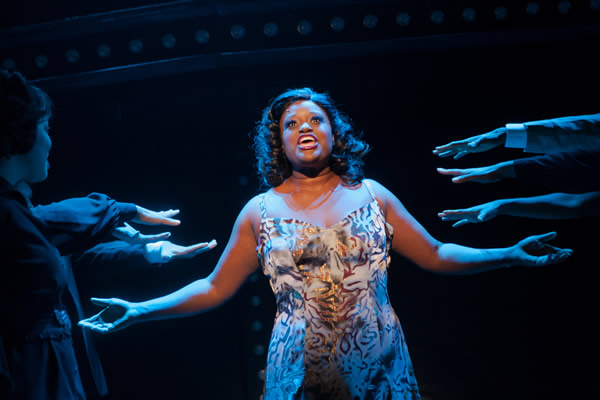

At this point in the plot, the two characters, formerly best friends, have not spoken in years because Deena previously betrayed Effie for the sake of her music career. As such, the brief just-here-to-justify-the-next-song dialogue mixed with ambitious thematic intentions sometimes leaves the audience with the impression that the musical does not understand the complexity of its own subject matter.įor example, the duet “Listen,” sung beautifully by Liisi DeFontaine and Amber Riley (Deena and Effie, respectively), falls into this trap. The only character who seems to escape this tropification is Effie, and even she falls into the American stereotype of the sassy, curvy black woman (though she has by far the best songs “Not Living Without You” is well worth the price of admission). The biggest victim of the singular trope characterization is Curtis, the sleazy used car salesman who becomes the manager of the Dreamgirls, and whose arc is clear from his first introduction. Then there is Lorell, the cynical backup singer who falls in love with a married pop star. For example, there is Deena, the wide-eyed innocent girl who “goes bad” to become famous. The characters in Dreamgirls only seem to exist as tropes. The political ambition of the show is admirable, especially considering its age, but as with any story, the only way to make those themes matter involves having interesting, fleshed-out characters with understandable motivations. However, Dreamgirls explores themes of racial and sexual politics in the sixties, marital abuse, body politics, and the cost of being famous in general. If the musical was not trying to tell a complex story, the lack of character would not be a problem ( Mamma Mia is a great example of a light on character, big on flash show that works). However, my liking of the show could not hide some of the major problems within the script problems that prevent Dreamgirls from being the cultural phenomenon it so deserves to be.ĭreamgirls suffers from a severe character development problem.

As such, my positive feelings towards the London premiere of Dreamgirls at the Savoy Theatre should not come as a surprise. In my opinion, Dreamgirls has some of the best music musical theatre has to offer.
EFFIE FROM DREAMGIRLS MOVIE
The movie was one I grew up with I have incredibly fond memories of my sister and I sitting in the car, watching that movie repeatedly. "And I Am Telling You I'm Not Going" (Craig C.Out of the entire London program group, I was probably the person most expected to enjoy Dreamgirls."Hard to Say Goodbye, My Love" (Instrumental)."And I Am Telling You I'm Not Going" (Instrumental)."Steppin' to the Bad Side" (Instrumental)." And I Am Telling You I'm Not Going" – 4:05."Move (You're Steppin' on My Heart)" – 1:56.The dance remix of "And I Am Telling You." was produced by Craig C.Īll songs written by Henry Krieger and Tom Eyen. The special edition version of the cast album was issued by Decca Broadway and Hip-O Records on November 21, 2006.

In 1993, the album was certified gold by the RIAA, and to date has sold over 500,000 copies in the US. In 1983, the album won the Grammy Award for Best Musical Show Album, and Jennifer Holliday received the Grammy Award for Best R&B Vocal Performance, Female for "And I Am Telling You I'm Not Going". It is the highest charting Broadway Cast Recording in history on the Billboard 200. Pop music producer David Foster served as producer of the cast album, which peaked at #11 on the Billboard 200, while peaking at #4 on Billboard's Black Albums Chart. Also included is a bonus disc featuring instrumental mixes (prepared for personal appearances by the cast) and a dance version of the musical's signature number, " And I Am Telling You I'm Not Going". A 2006 special edition remastered version, issued to tie-in with both the musical's 25th anniversary and the DreamWorks/ Paramount-produced Dreamgirls feature film adaptation, adds three previously unissued tracks from the original recording sessions. The cast album includes highlights from the musical's score many numbers were truncated or excised in order to fit onto one long-playing vinyl record. The cast album features performances by the show's performers, including Jennifer Holliday, Sheryl Lee Ralph, Loretta Devine, Ben Harney, Cleavant Derricks, Obba Babatundé, and Vondie Curtis-Hall. Issued by David Geffen, a co-financier of the musical and later producer of its 2006 film adaptation, the album was released by his Geffen Records label on April 14, 1982. Dreamgirls: Original Broadway Cast Album is the cast album for the original Broadway production of the musical Dreamgirls, which debuted at the Imperial Theatre on December 20, 1981.


 0 kommentar(er)
0 kommentar(er)
